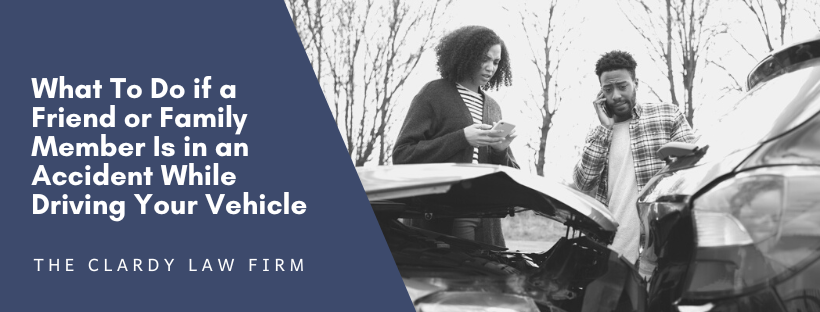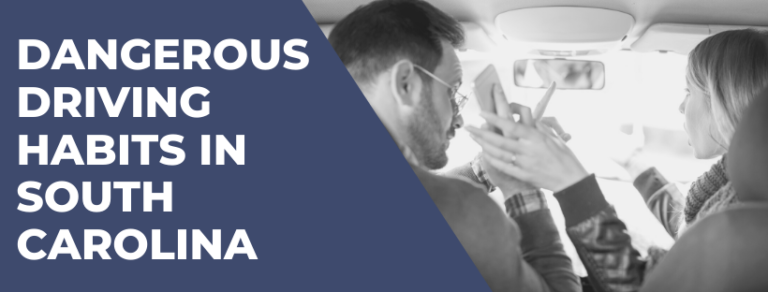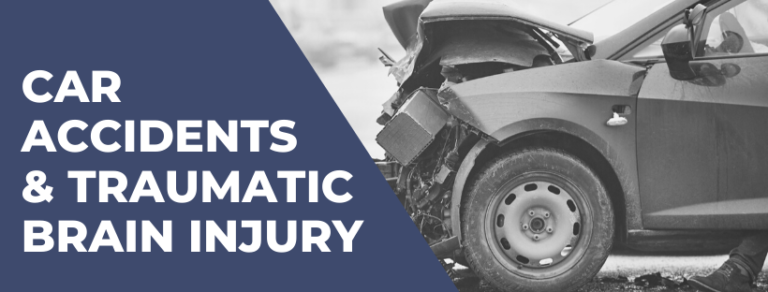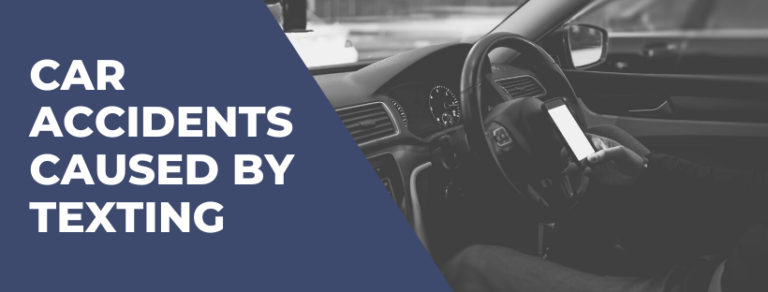Lending your vehicle to a friend or family member is a common occurrence in our daily lives. Whether for a short errand, a road trip, or simply out of convenience, many of us have entrusted our cars to loved ones at some point. After all, it could be that they are doing you a favor or you are helping them out. But what happens if the unexpected occurs, and the person borrowing your vehicle gets involved in an accident? This is all too common, especially in South Carolina, one of the most dangerous states for drivers.
Understanding how to navigate the aftermath of an accident when someone else is driving your vehicle is crucial. It can help you protect your interests, maintain healthy relationships, and ensure a smoother resolution to a challenging situation. This article explores the steps to take, the insurance considerations, and the potential legal aspects involved when a friend or family member is in an accident while driving your vehicle. By the end, you’ll be better prepared to handle such situations with confidence and clarity.
The Unexpected Accident: Dealing with the Aftermath
Accidents are, by nature, unexpected and often traumatic events. When they involve a vehicle you own but someone else is driving, the situation becomes even more complex. You may find yourself grappling with a mix of emotions — concern for the well-being of your friend or family member, anxiety about the condition of your vehicle, and uncertainty about the potential legal and financial repercussions. Let’s take a look at all those aspects.
Understanding Insurance Coverage
Accidents involving your vehicle and someone else behind the wheel can raise complex insurance issues. In this section, we delve into the intricacies of insurance coverage to help you comprehend what to expect and how to navigate it effectively.
Primary Driver vs. Permissive User
Insurance companies typically distinguish between the primary driver and permissive users of a vehicle. The primary driver is the person who regularly operates the vehicle and is listed on the insurance policy. On the other hand, permissive users are individuals you allow to drive your car occasionally. Understanding this distinction is crucial, as it can affect the coverage available in the event of an accident.
Your Insurance Policy: What It Covers
Your insurance policy plays a significant role in determining how an accident involving someone else driving your vehicle is handled. Most insurance policies cover the vehicle itself, regardless of who is driving. This means that if your vehicle sustains damage in an accident, your insurance should cover the cost of repairs, subject to the deductible.
Friend or Family Member’s Insurance: Secondary Coverage
While your insurance is primary, your friend’s or family member’s insurance can serve as secondary coverage if they have a policy. In some cases, their insurance may kick in to cover damages or liability that exceed the limits of your policy. However, the specifics can vary based on the insurance policies involved.
Implications of Uninsured or Underinsured Drivers
If the friend or family member borrowing your vehicle does not have their own insurance or has insufficient coverage, it can complicate matters. In some jurisdictions, the vehicle owner’s insurance may be responsible for covering the damages, even if the driver was uninsured or underinsured.
In the state of South Carolina, in the unfortunate event that someone borrows a car and finds themselves involved in a car accident with an uninsured driver, a potential avenue for compensation lies within a specific type of coverage on the car owner’s insurance policy, commonly referred to as ”uninsurance.”
For individuals who have suffered serious injuries and are blood relatives of the car owner while residing in the same household, there exists a legal mechanism known as “stacking.” This process allows you to access multiple uninsurance policies to meet the requirements for a settlement. In cases where stacking is not an option, the driver at the time of the accident may still access their uninsurance coverage if the car owner’s uninsurance is insufficient to cover the settlement.
However, it’s essential to note a significant caveat when utilizing uninsurance: your insurance company may adopt a defensive stance, effectively aligning themselves with the uninsured driver. This means that your insurance provider may not proactively assist you despite the accident not being your fault and your urgent need for a settlement. Moreover, they may withhold information regarding available coverage until you make a specific legal request.
If You Borrow Someone’s Car and Get in an Accident
In South Carolina, your auto insurance remains effective even when driving a borrowed vehicle. There are no restrictions on your ability to pursue a car accident settlement in South Carolina simply because you were driving a borrowed car. In such cases, the liability insurance of the at-fault driver typically comes into play, covering your car accident settlement. This settlement can encompass various aspects, including reimbursement for medical expenses, compensation for lost income, and recovery for pain and suffering.
Engaging the services of an experienced South Carolina car accident attorney to handle your insurance claim can prove invaluable in this type of situation.
Immediate Steps to Take
When an accident involving your vehicle occurs while someone else is driving, it’s essential to take immediate action to ensure the safety of all parties involved and to lay the groundwork for a smooth resolution. In this section, we outline the crucial steps to follow in the immediate aftermath of an accident.
Ensure Safety: Check for Injuries and Call 911 If Necessary
Safety first: As soon as you become aware of the accident, prioritize safety above all else. If you are at the scene or receive a call about the accident, assess the situation and check for injuries. If anyone is injured, call 911 immediately to request medical assistance.
Provide aid if possible: If it is safe and you have the necessary training, offer assistance to injured parties. However, avoid moving injured individuals unless it is absolutely necessary for their safety.
Exchange Information with Other Parties Involved
Exchange information: Regardless of who is at fault, exchange contact and insurance information with all parties involved in the accident. Obtain their names, addresses, phone numbers, driver’s licenses, and insurance details.
Document the accident: Take pictures of the accident scene, including the positions of the vehicles, damage sustained, and any relevant road conditions or signs. This photographic evidence can be invaluable later when dealing with insurance claims.
Contact Law Enforcement and Report the Accident
Call the police: In most cases, it’s advisable to contact the police and request an officer to come to the scene to prepare an accident report. This report can be crucial for determining liability and processing insurance claims.
Provide accurate information: When speaking with law enforcement, provide accurate and truthful information about the accident. Avoid making assumptions or admitting fault, as fault determination can be complex.
Document the Scene: Photos, Witness Information, and Statements
Gather witness information: If there are witnesses to the accident, collect their names and contact information. Witnesses can provide essential testimony in case of disputes.
Record statements: Encourage witnesses to provide statements to the police about what they observed. Additionally, consider taking written or recorded statements from the driver using your vehicle and other relevant individuals.
Taking these immediate steps can help establish a clear record of the accident and ensure the safety and well-being of all parties involved.
Notify Your Insurance Company
Once you’ve ensured the immediate safety of all parties involved in the accident and taken the initial steps outlined above, it’s crucial to promptly notify your insurance company about the incident. In this section, we get into the specifics of how to handle this critical step.
When to Report the Accident
Report promptly: Generally, it’s best to report the accident to your insurance company as soon as possible, even if you are unsure about the extent of the damages or who is at fault. Many insurance policies have specific timeframes within which accidents must be reported for coverage to apply.
Follow your policy guidelines: Review your insurance policy documents to understand the reporting requirements and deadlines. Failing to report the accident within the specified timeframe could lead to claim denials.
Provide Accurate and Complete Information
Detailed account: When you contact your insurance company, be prepared to provide a detailed report of the accident. This includes information about the incident’s location, date, and time and the names and contact details of all parties involved.
Stick to the Facts: Present the facts as accurately as possible. Avoid speculating or admitting fault, as fault determination is typically a complex process left to the insurance companies and, if necessary, the legal system.
Understand the Claims Process
Claim investigation: Your insurance company will initiate an investigation into the accident, which may include reviewing police reports, speaking with all parties involved, and assessing the damages.
Coverage assessment: Your insurer will determine the coverage available under your policy and how much it applies to the accident. They will also consider whether additional coverage, such as rental car reimbursement, applies.
Settlement negotiation: If your vehicle requires repairs or is deemed a total loss, your insurance company will work with you to facilitate the repair process or provide compensation for the vehicle’s value. Be prepared for negotiations regarding the value of your vehicle and the cost of repairs.
The Impact on Your Insurance Rates
Rate implications: It’s important to know that filing a claim, regardless of fault, can impact your insurance rates. Your premiums may increase after an accident, so consider discussing the potential rate implications with your insurance agent.
By notifying your insurance company promptly and cooperating throughout the claims process, you increase the likelihood of a smoother resolution to the accident involving your vehicle.
Dealing With Liability
When an accident occurs with someone else driving your vehicle, determining liability becomes a crucial aspect of the process. Liability impacts who is responsible for damages, including property damage and injuries.
Determining Fault in the Accident
Insurance investigations: Insurance companies will conduct their own investigations to determine liability. They consider factors such as witness statements, police reports, and the circumstances of the accident.
No-fault insurance states: In some states, no-fault insurance laws apply, meaning each party’s insurance typically covers their expenses regardless of fault. However, this may not absolve you entirely from liability if your vehicle is involved.
South Carolina is not a no-fault state. This means that the responsible party in motor vehicle accidents is obligated by law to provide compensation to the injured party. South Carolina regulations mandate that drivers maintain minimum insurance coverage to ensure their capability to compensate those injured due to their fault in an accident.
If you are the victim, you can directly pursue compensation from the at-fault driver’s insurance company or initiate a personal injury lawsuit. Engaging the services of a skilled personal injury attorney is highly advisable to guide you in selecting the most appropriate avenue for securing the compensation you rightly deserve.
If you require assistance obtaining your compensation, do not hesitate to contact us for professional support and guidance.
Shared fault: It’s possible that liability may be shared between multiple parties, including the driver of your vehicle and others involved in the accident. The extent of shared liability will depend on the circumstances.
Legal Implications: Potential Lawsuits
Legal action: In accidents resulting in significant injuries or damages, legal action may be pursued. This can involve personal injury claims or property damage lawsuits. It’s important to be prepared for the possibility of legal proceedings.
Liability limits and coverage: Your insurance policy has limits that dictate the maximum amount your insurance will pay for damages and injuries. If the damages exceed your policy limits, you may be personally responsible for the excess amount.
Consider legal counsel: If you or the driver of your vehicle faces legal action, it’s advisable to consult with an attorney experienced in personal injury or accident cases. Legal counsel can help protect your interests and navigate the complexities of the legal process.
Mediation and settlement: In some cases, parties involved in an accident may opt for mediation or negotiate a settlement outside of court. This can help resolve disputes more quickly and with less expense.
Why Contacting a Car Accident or Personal Injury Lawyer Is a Good Idea
When a friend or family member has a collision while driving your car, the situation can become legally complex, particularly if injuries or significant damages are involved. While many accidents can be resolved through insurance claims, there are scenarios where contacting a car accident or personal injury lawyer is a wise decision. In this section, let’s explore the reasons why seeking legal counsel can be beneficial in such situations.
Understanding the Legal Complexity
Legal nuances: Car accident cases can involve intricate legal nuances, especially when someone else is driving your vehicle. An experienced lawyer can help you navigate the legal complexities and ensure your rights and interests are protected.
Liability determination: In cases where liability is disputed, an attorney can conduct a thorough investigation, gather evidence, and present a strong case on your behalf. This is particularly crucial if the accident involves injuries or significant property damage.
Insurance Negotiations
Insurance company tactics: Insurance companies may employ various tactics to minimize payouts or deny claims, especially if the accident was caused by someone else driving your car. A lawyer can advocate for you during negotiations with insurance adjusters to ensure you receive fair compensation.
Maximizing compensation: A skilled attorney knows how to assess the full extent of your losses, including medical expenses, property damage, lost wages, and pain and suffering. They can work to maximize the compensation you receive from the responsible party’s insurance company.
Personal Liability Protection
Protection from personal liability: In cases where the accident exceeds the limits of your insurance policy or involves complex liability issues, a lawyer can help protect you from personal financial liability. They can advise on strategies to shield your assets and interests.
Legal Proceedings
Litigation representation: If the accident leads to a lawsuit, whether from the other party or your insurance company, legal representation is essential. An attorney can represent your interests in court and build a strong defense or pursue compensation on your behalf.
Peace of Mind
Reduced stress: Dealing with the aftermath of a car accident can be emotionally and mentally taxing. Hiring a lawyer can alleviate much of the stress by handling legal matters and allowing you to focus on recovery and other personal concerns.
Legal Guidance for Unusual Circumstances
Unique scenarios: Unusual circumstances, such as your family member taking your car without permission or complex jurisdictional issues, may require legal guidance. A lawyer with knowledge in these areas can provide valuable insights.
Helping Your Friend or Family Member
Dealing with an accident involving a friend or family member driving your vehicle can be emotionally challenging. Beyond the legal and insurance considerations, it’s essential to provide support and guidance to the person responsible for the accident.
Handling the Emotional Aftermath
Open communication: Keep lines of communication open with the person who was driving your vehicle. Understand that they may be feeling guilt, anxiety, or stress in the wake of the accident. Provide a safe space for them to express their feelings.
Emotional support: Offer emotional support and reassurance. Remind them that accidents can happen to anyone, and it’s essential to focus on moving forward positively.
Encourage Them to Report to Their Insurance
Responsibility: Encourage the driver to report the accident to their insurance company if they have a policy. Stress the importance of taking responsibility for their actions and ensuring their insurance company is aware of the situation.
Policy details: Help them understand their insurance policy and what it covers. Offer assistance in navigating the claims process if needed.
Offer Support and Guidance
Provide practical assistance: If the person driving your vehicle faces difficulties, offer practical assistance. This could include helping them find a rental car, accompanying them to meetings with insurance adjusters, or assisting with paperwork.
Legal counsel: If the accident results in legal proceedings, recommend that they consult with an attorney knowledgeable in personal injury or accident cases. Your support in finding appropriate legal counsel can be invaluable.
Maintain empathy: Remember that accidents can strain relationships, and it’s essential to maintain compassion and understanding throughout the process. Avoid blaming or making the individual feel isolated during this challenging time.
By offering emotional support, guidance, and practical assistance to the friend or family member involved in the accident, you can help them navigate the complexities of the situation with greater ease. This fosters stronger relationships and aids in their overall well-being during a challenging period.
Let Our Car Accident Attorneys in Greenville, South Carolina Help You
Accidents involving a friend or family member driving your vehicle can be unexpected and emotionally challenging experiences. Being prepared and knowing how to navigate the aftermath, from insurance claims to potential legal issues, is essential. Following the steps outlined in this article, you can protect your interests, maintain strong relationships, and handle these situations confidently.





